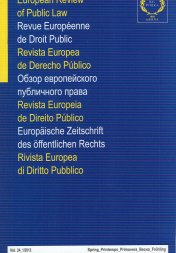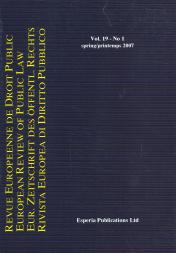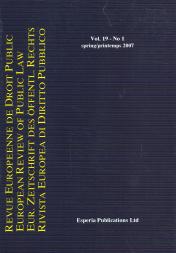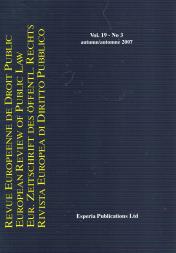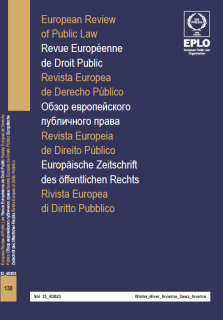
Constitutional Law / Droit constitutionnel
2023
Poland / Pologne
Grzegorz Kuca
Professor at the Jagiellonian University in Krakow, Chair in Comparative Constitutional Law, Vice Head of the Centre for Interdisciplinary Constitutional Studies
Aleksandra Dębowska
PhD, Assistant at the Jagiellonian University in Krakow, Chair in Comparative Constitutional Law
Elżbieta Gudowska-Natanek
PhD, Jagiellonian University in Krakow, Chair in Comparative Constitutional Law
In 2023, Poland witnessed pivotal parliamentary elections, resulting in PiS conceding power to a coalition comprising CP, the NL, and the Third Way. Poland faces a difficult, complicated and multifaceted process of repairing its democracy and returning to the standards of the rule of law. The new Council of Ministers got to work right away, with the first results being a package of laws under way, the establishment of a dialogue with the European Commission and bringing Poland closer to full mobilisation of funds from the National Recovery Plan. Certain aspects of this endeavour can be addressed through making changes to existing laws (e.g. recruitment of personnel in certain positions), some on the basis of laws (the NCJ, common courts, the Prosecutor’s Office) and some requiring amendments to the Constitution.
En 2023, la Pologne a connu des élections législatives décisives, ayant abouti au PiS cédant le pouvoir à une coalition composée du CP, du NL et de la Troisième Voie. La Pologne fait face à un processus difficile, complexe et multiforme de réparation de sa démocratie et de retour aux normes de l’État de droit. Le nouveau Conseil des ministres s’est immédiatement mis au travail, les premiers résultats étant un ensemble de lois en cours, l’établissement d’un dialogue avec la Commission européenne et le rapprochement de la Pologne plus près à la pleine mobilisation des fonds du Plan de relance national. Certains aspects de cette aventure peuvent être abordés par des modifications aux lois existantes (e.g. recrutement de personnelà certains postes), d’autres sur la base des lois (le Conseil national de la magistrature, les tribunaux ordinaires, le Bureau du procureur) et d’autres nécessitant des amendements à la Constitution.














